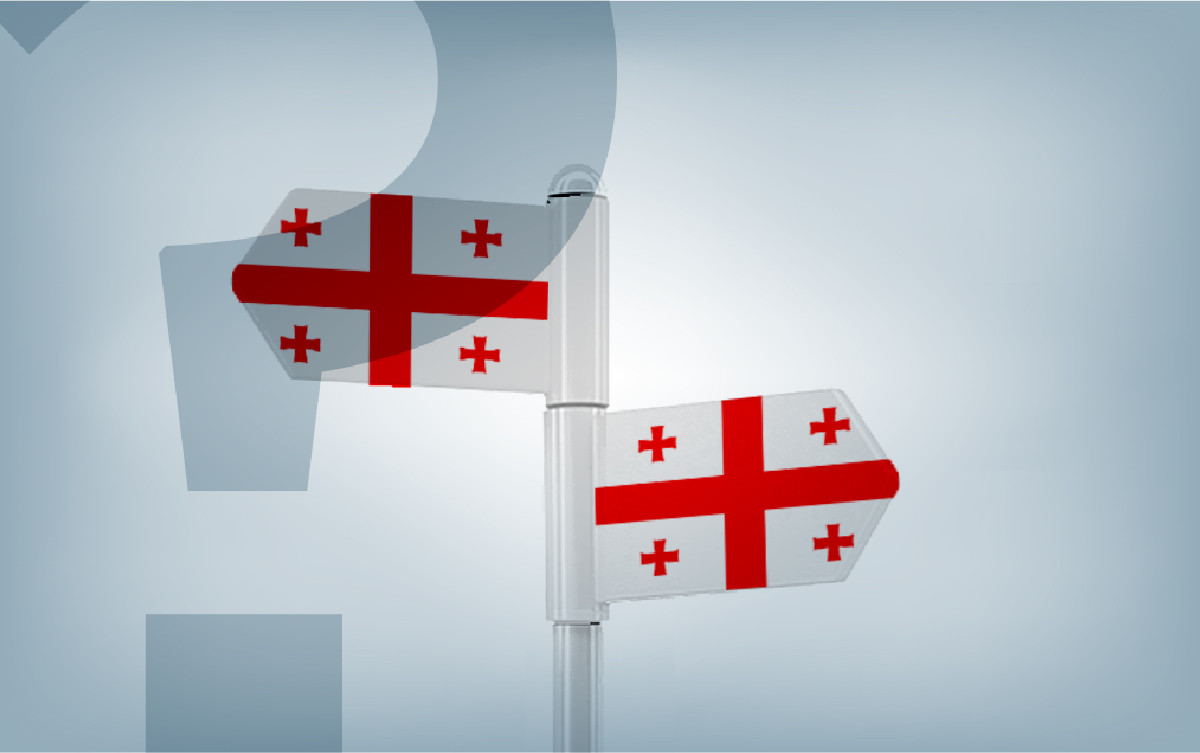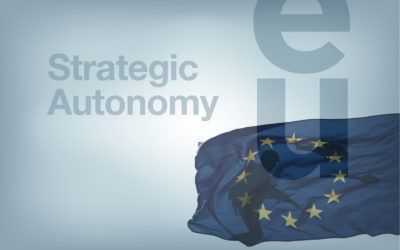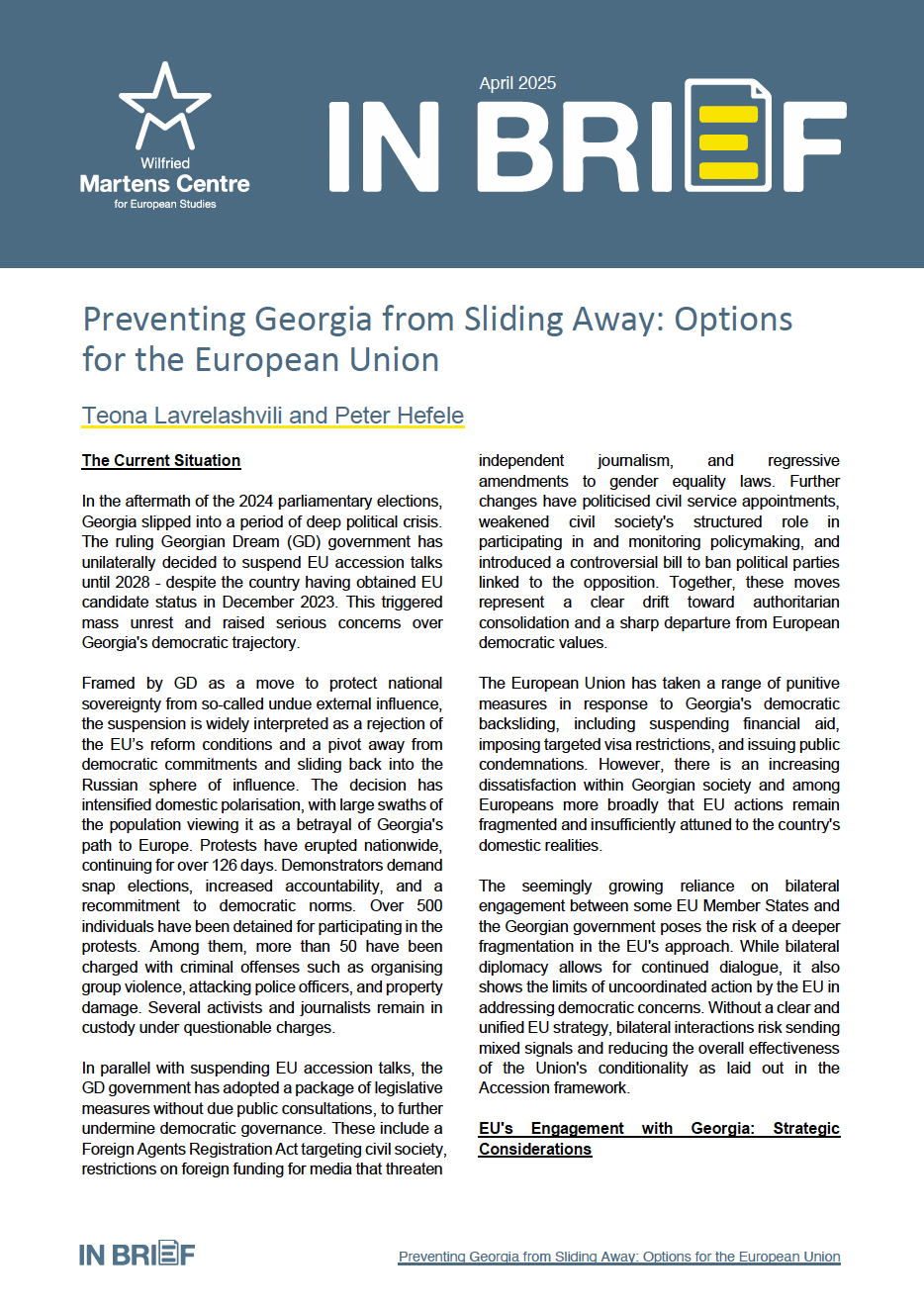Quo Vadis, Georgia?
15 May 2024

The political climate in Georgia teeters on the edge of a dangerous precipice. On 14th of May, the ruling Georgian Dream party passed the “Law on Transparency of Foreign Influence”, a measure reminiscent of Kremlin-style governance.
Widely referred to as the “Russian Law” and “Foreign Agents Law”, it has faced strong opposition both domestically and internationally, casting a dark cloud over Georgia’s democratic aspirations and its pursuit of closer ties with the European Union. This law was hastily pushed through in a parliamentary session lasting just a minute and a half, amidst chaotic scenes within and outside the parliament building, where riot police used tear gas to disperse protesters and MPs engaged in physical squabbles.
What is wrong with the law?
The law’s adoption isn’t inherently hazardous, aside from its problematic wording and several objectionable clauses. In fact, in a well-established democracy, a revised version of this law might even prove beneficial. Yet, without the essential checks and balances, and with a judiciary that is subordinate to an overly dominant executive branch, this legislation could easily lay the foundation for oppressive measures, much like those seen in Russia.
Although the term “agent” has been removed, the newly named “Law on Transparency of Foreign Influence” retains problematic elements that could be exploited to suppress critical voices. Organisations receiving more than 20% of their funding from foreign sources are required to register as “organisations serving the interests of a foreign power.” This stipulation not only stigmatises these groups but also threatens to polarise Georgian society, fostering divisions and radicalisation.
Particularly alarming is Article 8 of the law, which grants the government extensive powers to interfere in the activities of these organisations without clear mandates or oversight. This could lead to an abuse of power reminiscent of authoritarian regimes. The Minister of Justice is empowered to monitor these organisations based on very broad criteria, including potentially any statement from virtually any individual, infringing on privacy and setting a dangerous precedent for data protection rights violations.
The timing is also perilous
The enactment of this law comes at a critical moment in Georgia’s domestic politics and its relations with the EU. Having been granted EU candidate status in December 2023, Georgia was poised to make significant strides toward EU membership—a goal that seemed almost unattainable just a few years ago. This year, by meeting the EU’s conditions, Georgia could realistically expect to have a fair opportunity to begin accession talks. However, with the current law, the chances of advancing to open accession talks remain slim, as the likely consequences of the law will endanger the nine steps required for progress, which include the protection of human rights and the freedom of civil society and media.
With parliamentary elections scheduled for October, the ruling party’s anti-western stance and the enactment of this legislation could significantly impact their popularity. Yet, it remains uncertain whether they will be decisively defeated and replaced by a coalition government. The hope lies with the opposition and the revitalised civil society and youth movements, which have positioned EU integration as a pillar of their national identity and struggle.
How should the EU respond?
The European Union faces a complex dilemma. Harsh measures such as halting visa liberalisation or revoking Georgia’s candidate status might alienate the Georgian people and strengthen the government’s narrative that the EU is shutting its doors. On the other hand, a softer approach could allow authoritarian tendencies to further entrench themselves.
One could observe that Joseph Borrell, EU Foreign Policy Chief, underlined this dilemma in today’s statement. While criticising the law’s spirit and content as contrary to EU norms, the EU has not yet announced concrete actions against Georgia. A possible response could include targeted personal sanctions against key figures who perpetuate anti-democratic policies. Additionally, the EU could amplify its support for judicial reforms, aiming to develop a judiciary capable of acting as the last bastion against authoritarianism and poor governance.
As Georgia stands at this pivotal moment, the EU’s involvement is more crucial than ever. Beyond sanctions and structural reforms, the EU should spearhead an effective and strategic information campaign to better elucidate its positions on key issues affecting Georgian society. This would aid not only Georgia but also serve as a model for how the EU engages with other candidate countries facing similar challenges.
Georgia’s path toward EU membership is fraught with obstacles, yet with strategic engagement and support from the EU, combined with the unabated enthusiasm of the Georgian population to fight for EU ideals, the only way forward for Georgia remains firmly oriented towards Europe.
ENJOYING THIS CONTENT







